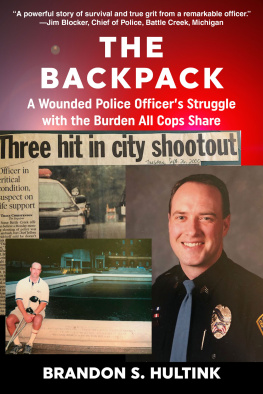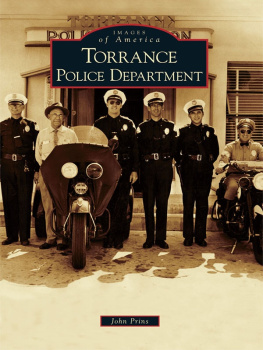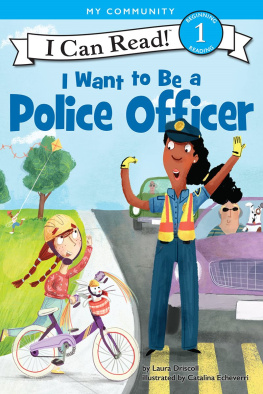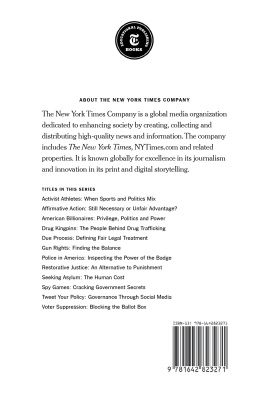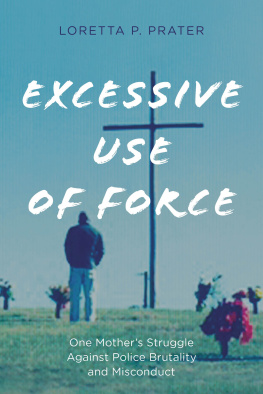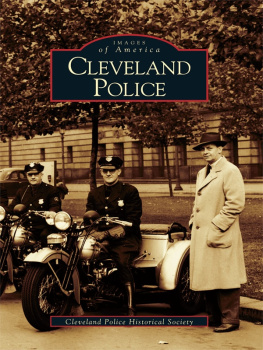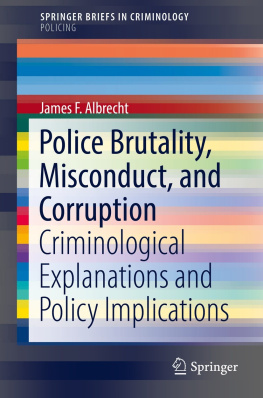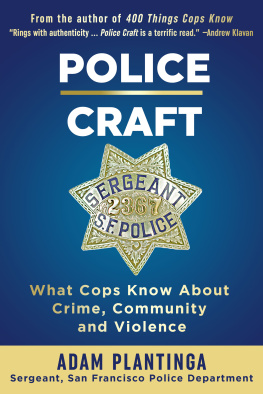Thank you for buying this ebook, published by NYU Press.
Sign up for our e-newsletters to receive information about forthcoming books, special discounts, and more!
Sign Up!
About NYU Press
A publisher of original scholarship since its founding in 1916, New York University Press Produces more than 100 new books each year, with a backlist of 3,000 titles in print. Working across the humanities and social sciences, NYU Press has award-winning lists in sociology, law, cultural and American studies, religion, American history, anthropology, politics, criminology, media and communication, literary studies, and psychology.
JAMMED UP
Jammed Up
Bad Cops, Police Misconduct, and the New York City Police Department
Robert J. Kane and Michael D. White
PREFACE BY CANDACE MCCOY
NEW YORK UNIVERSITY PRESS
New York and London
www.nyupress.org
2013 by New York University
All rights reserved
References to Internet websites (URLs) were accurate at the time of writing.
Neither the author nor New York University Press is responsible for URLs
that may have expired or changed since the manuscript was prepared.
LIBRARY OF CONGRESS CATALOGING-IN-PUBLICATION DATA
Kane, Robert J.
Jammed up: bad cops, police misconduct,
and the New York City Police Department /
Robert J. Kane and Michael D. White; preface by Candace McCoy.
p. cm.
Includes bibliographical references and index.
ISBN 978-0-8147-4841-1 (cl: alk. paper)
ISBN 978-0-8147-8575-1 (ebook)
ISBN 978-0-8147-7085-6 (ebook)
1. New York (N.Y.). Police Dept. 2. Police misconductNew York (State)New York.
3. Police-community relationsNew York (State)New York. 4. Police administrationNew York
(State)New York. I. White, Michael D. (Michael Douglas), 1951-II. Title.
HV8148.N5K36 2012
363.2097471dc23 2012024952
New York University Press books are printed on acid-free paper,
and their binding materials are chosen for strength and durability.
We strive to use environmentally responsible suppliers and materials
to the greatest extent possible in publishing our books.
Manufactured in the United States of America
c 10 9 8 7 6 5 4 3 2 1
p 10 9 8 7 6 5 4 3 2 1
This book is dedicated to the memory and legacy of Dr. James J. Fyfe, the original architect of the Bad Cops study. Few scientists of any discipline can rightfully claim that their research ever saved a single human life. Jim Fyfes research has saved many human lives. Without a doubt, Jim left this world substantially better off than when he found it.
CONTENTS
PREFACE
What Bad Cops Tell Us about Good Policing
Candace McCoy
Just as every cop is a criminal,
And all the sinners saints
Just call me Lucifer
Cause Im in need of some restraint.
So if you meet me, have some courtesy.
Have some sympathy, and some taste
ah, whats puzzling you
is the nature of my game.
Sympathy for the Devil, The Rolling Stones, 1968
Mick Jagger was not claiming that all cops are criminals; he was saying that everyone is. The lyrics of this iconic rock song continue: I cried out, who killed the Kennedys? when after all, it was you and me. Given a certain set of conditions, any cop can be a criminal or any sinner a saint, but we are all responsible for our actions. Have a little sympathy, Jagger says; it can happen to anybody caught in a bad situation. The solution is to change the situation. Applied to the policing profession, this would mean that we first have to understand and probably change the conditions in which cops work, and also to develop policies and organizational structure that upholds standards of good policing. So: what are those conditions, how do they affect good decisions, and what exactly is good policing? Or, as Jagger asked, whats the nature of the game?
In this book, Kane and White deeply examine the conditions under which cops become criminals, or at least get jammed up. They go further, analyzing whether those conditions are primarily attributable to the personal characteristics of the police officers themselves or to the organizational characteristics (and political environment) which define their employer, the New York City Police Department. Not surprisingly, the authors find that both individual and organizational variables significantly account for police misconduct or, put in terms of previous scholarship on the police, rotten apples commit acts of deviance, and sometimes the entire barrel becomes rotten because the rot spreads. Kane and White add to existing knowledge about police misconduct by showing that organizational policy and practices, not simply individual bad apples, can be a source of bad policing through no fault of individuals. In other words, sometimes the barrel itself is rotten and induces good apples to do bad things, for instance when a police department requires highly aggressive street patrol in neighborhoods that need a different kind of policing.
Among its other strengths, this book sets these findings into criminological inquiry. It broadens the example of police officer deviance within a hierarchical organization into a larger question that applies to anybody who works in any organization: how much do organizational structure, context, and management policies account for individual acts of employee misconduct? Given recent events on Wall Street, in professional sports, in the finances of defense contractors, in medical and legal malpractice well, it is very clear that Kane and White are on to something really important. In its theoretical base, this book is as much about white-collar crime as it is about brass-collar deviance, and it should be read by criminologists as well as scholars of criminal justice organizations like police departments.
The very term jammed up shows how nuanced the dynamics of deviance can be. New York police officers say that a police officer got jammed up when the bosses charged an individual officer with a violation of departmental rules, whether minor or middling or severe. But the term has another layer of meaning: the alleged offender has gotten caught up in the departments bureaucratic machinery, which may apply arcane rules or office politics or political pressures to the detriment of fair treatment of the individual officer. The cops know when one of their own is a schmuck who should have known better or a nut job who needs to be thrown out (or, worst of all, a true bad guy). They also know that the bosses have their own set of priorities which might collide with what the street cop sees as good policing, blaming schmucks for being nut jobs or bad guys or vice versa. Another great strength of this book is that Kane and White show how the definition of good policing is malleable and, because the organization poorly defines and explains it and because city politics intervene, saying that an officer got jammed up can imply that the department might seek to deny its own responsibility for creating conditions under which cops are more likely to practice bad policing. Getting jammed up means that you got caught in an act of deviance and also in the cogs of an impersonal machine that turns for its own purposes.


